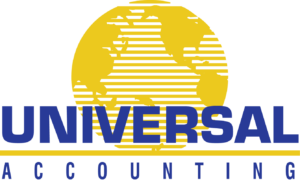(Part Two of a Two-Part Series)Questions to Help You Pick the Right Candidate

Break the ice
Start by putting the candidate at ease. Ask a question or two that will break the ice and set a casual tone for the interview. Consider the following:
- Are you enjoying the summer?
- Are you managing to stay cool/dry/warm in this weather?
- Did you enjoy the holiday?
Note: Be careful! It is illegal to ask candidates anything discriminatory. Avoid all questions that address the following: race, color, gender, sexual preferences, religion, national origin, birthplace, age, disability, marital/family status.
Learn of past performance/Determine problem-solving ability
You want to know what kind of worker this candidate is, and the best way to determine that is to ask questions that will help you assess their past performance. It’s important that you include behavioral questions when appropriate. These types of questions help you to see how candidates would act given a certain work situation (or how they have acted in past work situations). Consider questions that demonstrate whether or not the candidate is proactive and has the ability to resolve problems independently. This is also a good time to see how well these candidates work with others. And remember that you want a well-rounded candidate. Interviewees who only describe themselves in a positive light may not recognize their weaknesses as well as their strengths; either that or they’re not being honest. Consider the following:
- Describe your employment history.
- Why did you leave your last job?
- What would your last boss say about your performance?
- Tell me about a time when you struggled with an assignment/project/task.
- What was the most/least rewarding aspect of your last job?
- Describe a situation where you . . . (were overwhelmed by multiple projects, had to resolve an emergency without supervisory help, successfully delegated tasks, contributed to a company/employer’s success, etc.)
- What career accomplishment has given you the greatest satisfaction?
- What mistake have you learned the most from?
- Tell me about a time when you had to work with a team.
- Do you prefer working alone or in teams?
- How do you deal with conflict?
- How do you react to difficulty and/or stress?
Learn of work preferences
It’s also important to discover the type of work environment your candidates feel most comfortable in. Equally important is determining which applicant is a good match to your company’s goals and objectives. The following questions will help:
- What types of responsibilities have you found to be most rewarding? Why?
- What type of management style do you most appreciate? (hands-on, regular supervision, minimal supervision)
- In what ways will you contribute to this company?
- Why do you want to work for X Company?
- What do you know about X Company?
- If you were hiring someone to this position, what qualities would you look for?
- Why should we hire you?
Ask about the candidates’ future career goals
This will help determine their motives in working for you. The candidate who sees your position as an opportunity to learn and grow as he/she advances in his/her career is much more desirable than the candidate who thinks this will be an easy, sit-down job regardless of how it aligns with his/her long-term goals. Consider the following:
- What are your short-term and long-term career goals?
- Where do you see yourself in 5 years?
- How do you plan to achieve your career objectives?
- What do you want in life?
- Why did you choose this particular career?
- How will this position help you advance your career goals?
It’s important that you determine what you’re looking for in a candidate before composing interview questions. If costumer service is important to you, craft questions that will help you recognize whether or not candidates will work well with your clients. If punctuality and a good work ethic are important to you, again you must craft questions that help you see how your candidates measure up to these requirements.As long as you take the time to thoughtfully compose your interview questions and ask each candidate the same set, you’ll be sure to find the perfect fit for your position.
Share this post: on Twitter on Facebook on Google+




